
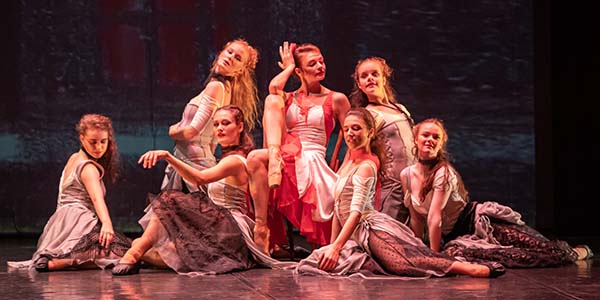
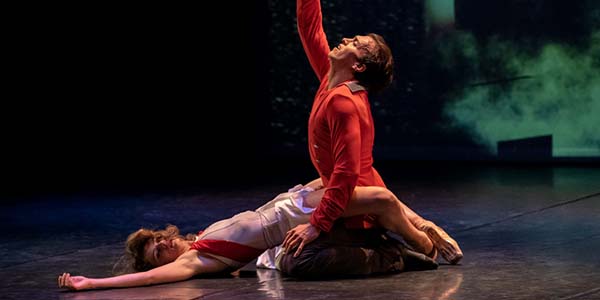
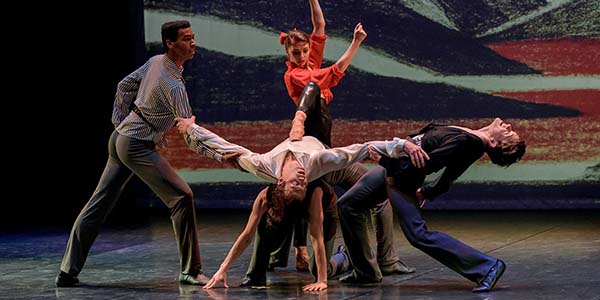
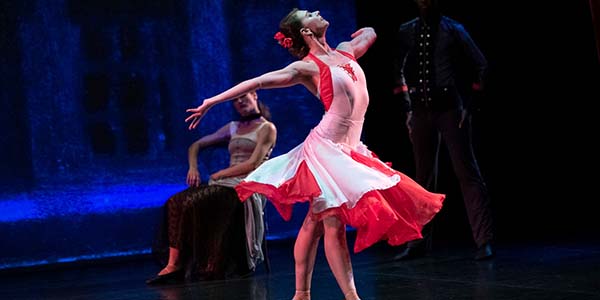
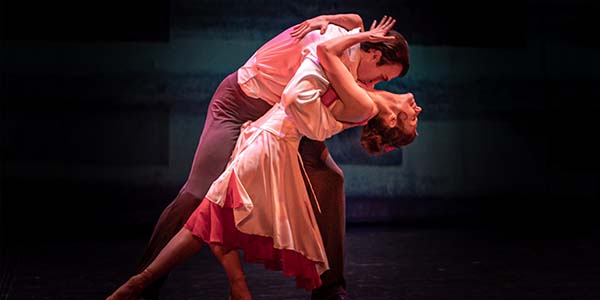
16+
- Ballet
- Drama
Hermitage Theater / Main hall
Address: Russia, Saint-Petersburg, Dvortsovaya emb., 34
Duration: 01:40
Intermission: 1
Ballet "CARMEN" (Art Center Saint-Michel)
Ballet in 2 acts to music by Georges Bizet
Choreography and libretto by Mikhail Venshchikov
The ballet "Carmen" is a performance of the St. Petersburg company "Art Center" Saint-Michel ", well known to the audience in Europe, Japan, and South America. The ballet premiered in November 2019 in Brussels, on the stage of the BOZAR Royal Center for the Arts. Later, in February 2020, the audience of the Munich Philharmonic GASTEIG got acquainted with the performance.
The bright original choreography makes the performance unlike any of the previously known productions of the famous plot. Expressive ensemble scenes are effectively combined with the dramatic dances of the main characters.
Particularly noteworthy is the stage design of the ballet, in which the artists managed to convey the elusive atmosphere of old Spain, using the possibilities of animated projection.
Choreographer: Mikhail Venshchikov
Musical consultant: Valentin Bogdanov
Artistic design concept: bunk bed. artist of Russia Vyacheslav Okunev
Production designer: Tatiana Koroleva
Video graphic artist: Victoria Zlotnikova
Choreographer's assistants: Evgenia Kostyleva, Elena Pankova, Vitaly Vidineev, Johan Gossans, Olga Poryvko
Technical Director: Maxim Marinin
Costume technologist: Evgeniya Ermolenkova
Makeup: Anna Rozadorskaya, Anna Chekmareva
Carmen's story is an almost perfect excuse to look inside yourself. The love triangle, in which the images of officer Jose, Toreador and Carmen are built, does not imply a division into right and wrong. Each hero here has his own truth and his own unwritten scenario of how to live, love and die.
From the very beginning of work on the performance, the form of a one-act ballet-fresco seemed to me insufficient to reveal the images of the main characters. Most of all, I wanted to avoid those clichés that have become firmly established for nearly two hundred years in their interpretation on the opera and ballet stage. So, in Jose, my goal was to show not a proud jealous person, but a doubting person who is torn between love and duty. The bullfighter, whose image of a cold handsome man has become a reference, in our ballet seeks to break out of the bounds of masculine infernality allotted to him. In his eternal rival, the bull, he sees a friend and brother, who alone knows the price of all his victories and defeats. Finally, in reading the image of Carmen, the most important for me is her fatal fear of loneliness, from which neither faith nor beauty can save.
Another reason why our ballet took the form of a two-act production was the genius music of Georges Bizet. Not only the well-known opera, but also rarely performed works of the composer, formed a complex palette of images, messages and meanings, the choreographic embodiment of which became an equally exciting and responsible task for me.
Art Center "Saint-Michel" develops the glorious traditions of Russian classical ballet, demonstrating its best examples in Europe, Japan and Latin America. Based on the experience of Sergei Diaghilev's Russian Seasons, the company does not limit itself to working with established brands in the field of performing and choreographic arts, but is open to experiment and search for new forms.
Turning to old choreography, staging concert programs, creating new full-length performances are the result of the work of a talented team of like-minded people. Today, we are cooperating with specialists with colossal experience in the field of choreography, music, theatrical and design art.
The performance is accompanied by a soundtrack.
The performance lasts 1 hour 30 minutes
The performance has one intermission.
Act I
Scene 1 Morning. Work begins at the tobacco factory. The women roll cigars, indignant at the oppressive monotony of their lives. Belatedly, after everyone else, Carmen appears. She is in no hurry to get down to business, her voice of protest against the daily routine sounds louder than the others. A guard detachment arrives to protect the factory. The attention that the women show the soldiers makes Carmen jealous. A fight begins. The young officer Jose orders the soldiers to intervene and arrest the instigator. But Carmen's charms prevent his plan from being realized. Soon he himself finds himself in their captivity. Taking advantage of the opportune moment, Carmen disappears. Scene 2 Siesta. The empty square in front of the factory. Jose tries to comprehend what has happened. The feelings that Carmen stirred in his heart are new to him. Even the memories of the mother and fiancée he left behind cannot overshadow the image of a proud gypsy. Unexpectedly, Carmen, who was secretly watching the officer, interrupts the painful course of his thoughts. In amusement, she showers Jose with reproaches for his rudeness. But behind the mask of cold flirtation, a reciprocal feeling begins to awaken. The fanfares announcing the arrival of soldiers make the lovers hide. Scene 3 A dark room with closed shutters. The toreador is preparing for the upcoming bullfight. Thoughts of death and the need to kill again haunt him. In the image of his eternal rival - the bull - he sees his fellow sufferer. Scene 4 Twilight falls. Carmen takes Jose out of the city. Having become a deserter, he is having a hard time breaking with the world he is accustomed to. But the feeling for Carmen that has awakened in his heart makes him forget all his worries. The sudden appearance of the gypsies dramatically changes the mood of the evening. The prediction they receive throws the fugitives into confusion. Act II Scene 5 In the square in Seville, people are discussing the news of Jose's escape. No one believes that Carmen will remain faithful to him. They say that his main rival in the fight for the gypsy's heart is the famous bullfighter Escamillo. Scene 6 The smugglers make their dangerous way along the mountain paths. Excitement and thirst for profit make them boldly look death in the eye. Carmen and Jose join them at the rest stop. The bandit's morals disgust the fugitive officer. But Carmen is adamant. To keep her love, he must become one of them. Unable to resist passion, he agrees. Scene 7 The city is preparing for the start of the bullfight. The jubilant crowds greet the march of the bullfighters. Under the walls of the arena, Carmen meets Escamillo. The proud image of the bullfighter makes her forget about the promises she made earlier. Without fear of being recognized, Jose finds his beloved in the arms of another. In a rage, he wants to take revenge on his successful rival. But against his will, the punishing hand of fate chooses Carmen as its victim. Scene 8 Jose mourns Carmen's lifeless body. In his thoughts, he returns to unfulfilled dreams and hopes. From the author: Carmen's story is an almost ideal reason to look inside ourselves, to admit how little responsibility for the feelings of other people is inherent in our nature. The classic triangle in which the images of officer Jose, the bullfighter and Carmen are built does not imply a division into those who are right and those who are guilty. Each character here has his own truth and his own unwritten scenario of how to live, love and die. Finding themselves in the power of a merciless fate, they attract and repel each other, fervently striving for idyllic harmony, in order to then destroy their own and others' destinies. In our performance, I wanted to avoid those cliches that have become established in musical theater in the interpretation of the characters of the main characters, to show them deeper and more voluminous. In this regard, the form of a one-act fresco ballet, proposed for Carmen by the outstanding 20th century choreographers Roland Petit and Alberto Alonso, seemed to me insufficiently complete for solving this problem. In the ballet score we included not only music from the opera of the same name, but also fragments of Bizet's instrumental works, such as the symphonic cycle "Arlesienne", the overture "Fatherland" (Op. 19 Patrie), and a number of others. Mikhail Venshchikov- Children from 0 years old - you need to buy a ticket at full price.
- All Tickets NO SERVICE!
Schedule:
To view upcoming events, go to: Playbill and Tickets


